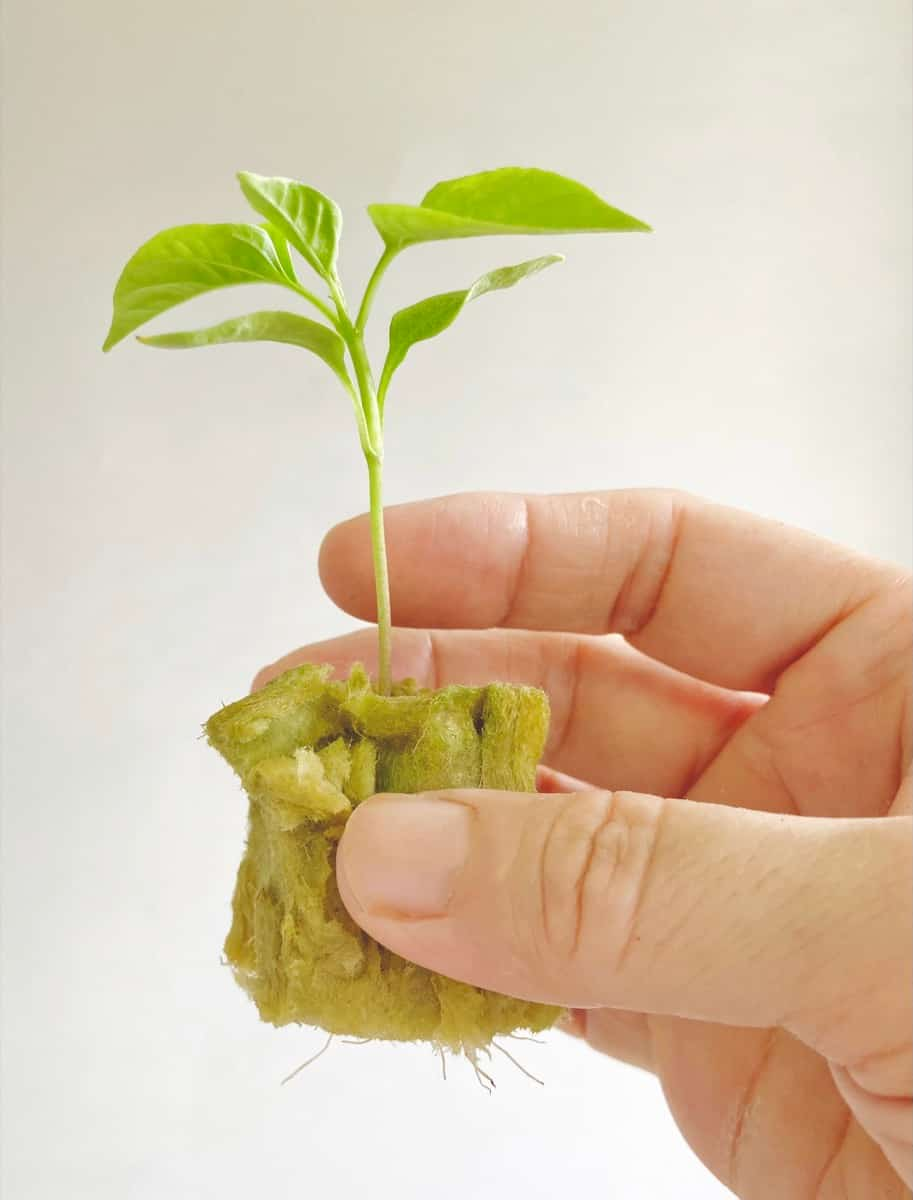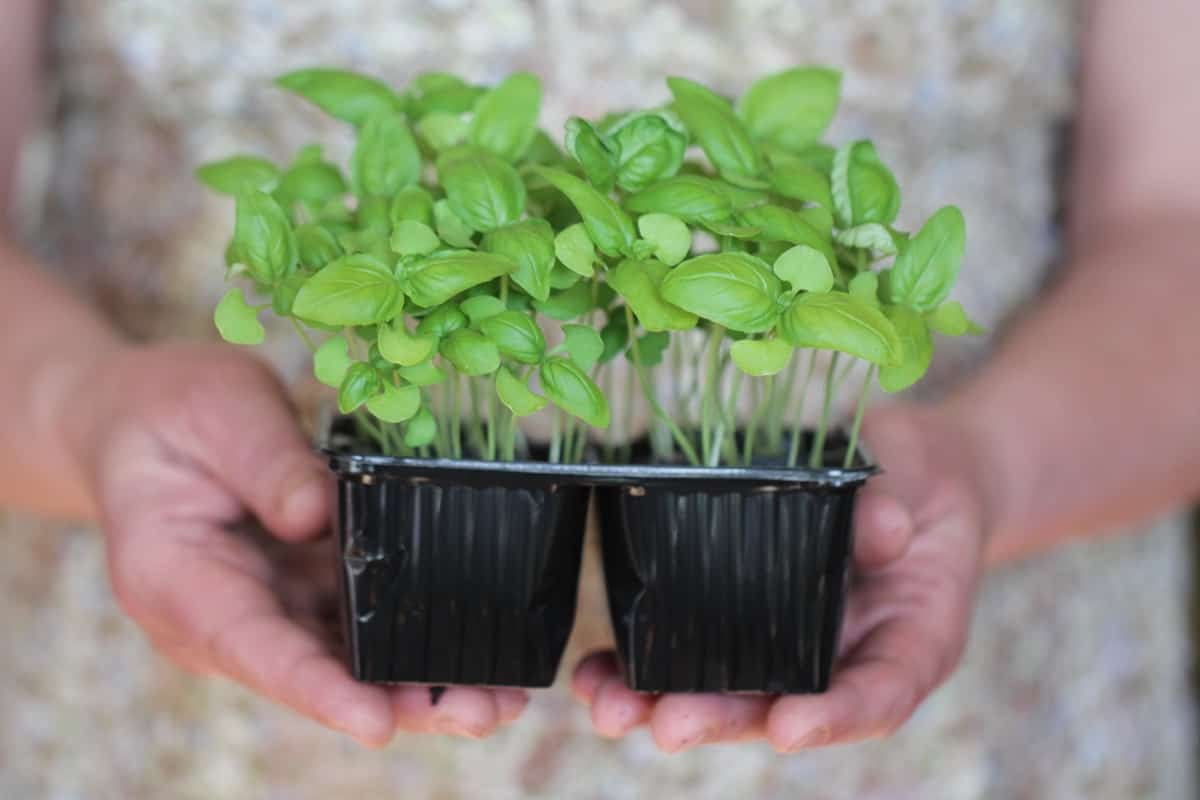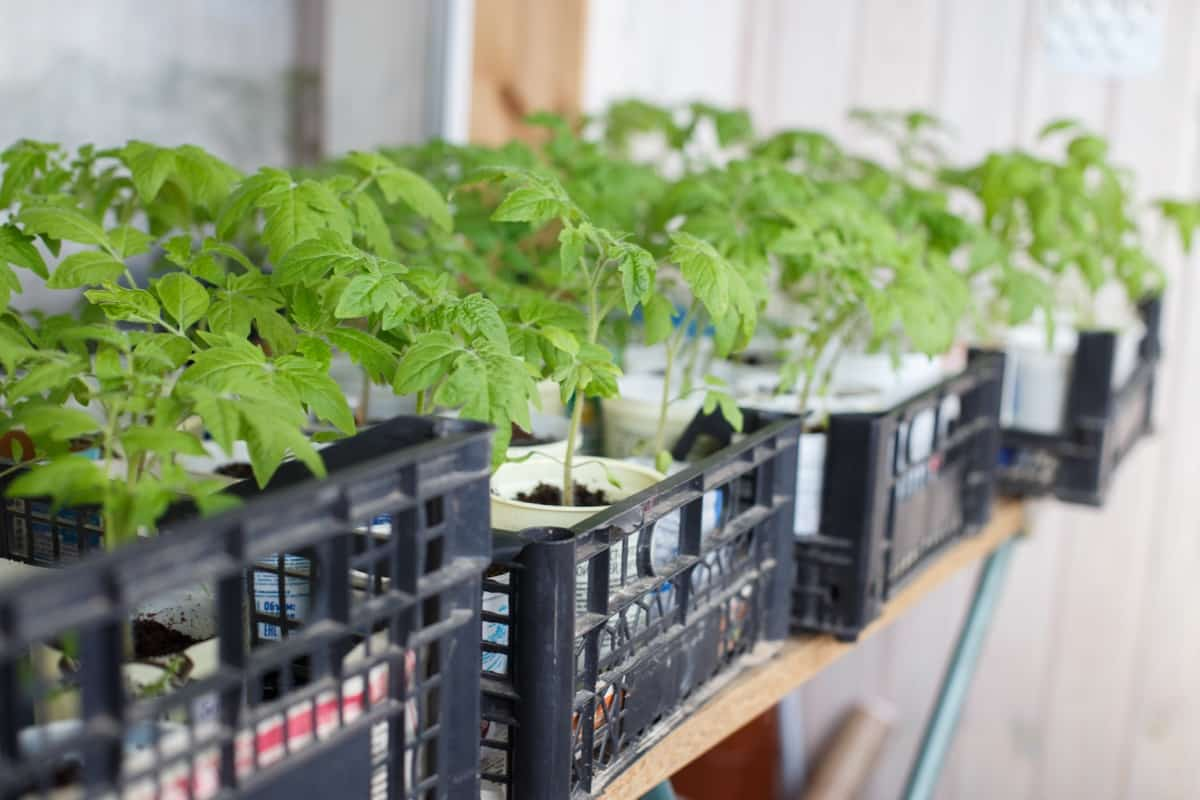Welcome to our blog, where we delve into the fascinating gardening world! Today, we’re excited to explore the top 10 plants that thrive in Rockwool, a popular growing medium. Rockwool, a lightweight, porous material made from volcanic rock, offers an ideal environment for germination. Its exceptional water retention and aeration properties promote robust root growth and ensure optimal nutrient uptake. Whether you’re a seasoned gardener or a beginner, this comprehensive list will provide valuable insights to cultivate your dream garden.

What is Rockwool?
Rockwool, mineral wool or stone wool, is a popular and versatile growing medium used in gardening and horticulture. It is derived from natural volcanic rock, primarily basalt, which undergoes a high-temperature melting process. During this process, the molten rock is spun into fine fibers, creating Rockwool.
The unique properties of Rockwool make it an excellent choice for plant cultivation. It boasts exceptional water retention capabilities, ensuring a steady moisture supply to plant roots while preventing waterlogging. Additionally, Rockwool offers excellent aeration, allowing roots to get the oxygen they need for growth. Its pH-neutral nature ensures that it won’t influence the acidity or alkalin of the nutrient solution, providing a stable environment for plant growth.
How Rockwool is Made
- Melting the Raw Materials: Rockwool is made by combining basalt rock and chalk. These materials are heated to an extremely high temperature, approximately 3000°F until they form lava.
- Fiber Formation: The molten lava is then cooled and spun into fine strands, similar to cotton candy. These strands are then chopped into smaller pieces, which are used to create Rockwool slabs or cubes.
Different Ways to Make Rockwool
Using Cinders or Slag: In addition to basalt rock and chalk, Rockwool can also be made from other materials like cinders or slag. These materials are heated and spun to create fibers, which are then chopped into pieces to form Rockwool.
Choosing the Right Rockwool for Your Needs
- Consider Temperature Range: Determine the temperature range that the Rockwool can withstand. Some types can handle high temperatures, while others suit lower-temperature environments.
- Purpose of Use: Consider the specific application of Rockwool. For hydroponic growing, choose a pH-neutral Rockwool to maintain a stable environment.
- Density: Different Rockwool densities affect water retention. Heavier Rockwool retains more water, while lighter options hold less.
- Absorbency: Assess how absorbent the Rockwool is, as this varies among different types. Choose one that suits the liquid quantity needed.
- Cube vs. Slab: For hydroponic beginners, cubes are recommended as they provide sufficient support for most plants during indoor growing. Slabs may be more suitable for specific plants or situations.
How to Use Rockwool Cubes for Germination
Germinating plants in Rockwool cubes is a straightforward and effective process. Rockwool cubes create an ideal environment for successful germination with their pre-sterilized nature and humidity-retaining properties. Follow these simple steps:
- First, create holes in the Rockwool cube with a pencil to accommodate future root growth.
- Next, soak the Rockwool cube in water until thoroughly moist. Place the germinating seeds on top of the Rockwool cube.
- Cover the seeds gently with another layer of soaked Rockwool to retain moisture and heat.
- Finally, position the Rockwool cubes in a sunny spot to provide warmth and ample moisture. Germination typically occurs within one week, but certain plants may take up to three weeks.
In case you missed it: Herbal Remedies for Houseplant Pests and Diseases: Prevention, Treatment, and Solutions

10 Plants That Germinate Great in Rockwool
- Herbs (such as basil, thyme, etc.): These aromatic herbs thrive when germinated in Rockwool cubes due to the required heat and humidity.
- Peppers: Similar to tomatoes, peppers require significant heat and moisture, making Rockwool cubes a perfect choice for their successful germination.
- Cucumbers: These refreshing veggies benefit from the heat and humidity in Rockwool cubes, promoting robust germination.
- Zucchini: The warm, moist environment of Rockwool cubes aids in the successful germination of zucchini seeds.
- Lettuce: With its need for ample warmth and moisture, lettuce finds a conducive environment for germination in Rockwool cubes.
- Flowers (including petunias, geraniums, etc.): Rockwool cubes foster the ideal conditions for germinating various flowers.
- Melons (like cantaloupe, honeydew, etc.): Melon seeds germinate well in Rockwool cubes, benefiting from the warmth and humidity they provide.
- Strawberries: With their need for warmth and moisture, strawberries flourish when germinated in Rockwool cubes.
- Spinach: Spinach leafy green vegetable with essential nutrients and antioxidants. It thrives in environments that offer ample moisture and good drainage, making Rockwool an ideal medium for its cultivation.
- Tomatoes: The warmth and moisture provided by Rockwool cubes create an optimal environment for tomato seeds to sprout and flourish.
In case you missed it: Bone Meal for Tomato Plants: Benefits, When, and How to Apply?

Things to Avoid When Germinating in Rockwool
- Over-watering: Rockwool can retain much water, but excessive watering can lead to waterlogged roots and plant death.
- pH Imbalance: Monitor the pH levels of your water or soil, as fluctuations can harm plants even though Rockwool is pH neutral.
- Inadequate Sunlight and Warmth: Ensure your germinating plants receive sufficient sunlight and warmth for healthy growth.
Benefits of Using Rockwool in Hydroponics
- Excellent Water Retention: Rockwool can hold water while maintaining proper aeration, preventing overwatering in hydroponic systems.
- pH Neutral and Safe: Rockwool does not contain harmful chemicals and maintains a neutral pH, providing a stable environment for plants.
- Lightweight and Easy to Work With: Its lightweight nature makes handling and transplanting easy, ideal for beginners and experienced gardeners.
- Rockwool Cube Options: Choose the right Rockwool cube size for your garden: 1 inch, 1.5 inches, 2.5 inches, 3 inches, 4 inches, or 6 inches.
Ideal Plants for Rockwool Propagation
Ideal plants for Rockwool propagation benefit from the medium’s excellent water retention and aeration properties. Examples include tomatoes, peppers, cucumbers, lettuce, herbs (basil, thyme, etc.), flowers (petunias, geraniums, etc.), melons (cantaloupe, honeydew, etc.), strawberries, and spinach. Rockwool provides an optimal environment for germination and healthy root growth, leading to the successful propagation of these plants.
Rockwool Germination Tips
- Pre-soak Rockwool: Before use, soak the Rockwool cubes in water with a pH-balanced solution to ensure proper hydration.
- Drain Excess Water: Allow excess water to drain after soaking, preventing over-saturation and waterlogged roots.
- Ideal pH Level: Check and maintain the pH level of the water or nutrient solution between 5.5 to 6.5 for optimal plant growth.
- Proper Ventilation: Ensure adequate ventilation to prevent mold and encourage healthy air circulation around the germinating plants.
- Gentle Seed Placement: Place seeds gently on top of the Rockwool cubes, avoiding damage to the delicate seedlings.
- Moisture Retention: Cover the seeds with another layer of moist Rockwool to promote consistent moisture retention and encourage germination.
- Appropriate Lighting: Place the germinating Rockwool cubes in a well-lit area with ample warmth to stimulate seedling growth.
- Avoid Overcrowding: Provide enough space between cubes to prevent seedling competition and ensure proper air circulation.
- Monitor Humidity: Keep humidity levels around 70-80% for successful germination and early seedling development.
- Transplant with Care: When ready to transplant, handle seedlings delicately to minimize root damage and promote smooth growth in their new environment.
Conclusion
Rockwool proves to be an excellent germination medium for a diverse range of plants. From tomatoes and peppers to cucumbers and strawberries, its exceptional water retention and aeration properties foster robust growth, making it a popular choice for successful gardening endeavors.
- Feed Your Flock for Less: Top 10 Tips to Save on Chicken Feed
- Ultimate Guide to Ossabaw Island Hog: Breeding, Raising, Diet, and Care
- Hatching Answers: The Top 10 Reasons Your Chickens Aren’t Laying Eggs
- Eggs and Economics: Breaking Down the Cost of Raising Backyard Chickens
- Defend Your Greens: Proven Methods to Keep Iguanas Out of Your Garden
- Ultimate Guide to Cinnamon Queen Chicken: A Comprehensive Guide for Beginners
- Ultimate Guide to California Tan Chicken: Breeding, Raising, Diet, Egg-Production and Care
- Ultimate Guide to Marsh Daisy Chicken: Breeding, Raising, Diet, and Care
- 10 Types of Chicken Farming Businesses You Can Start for Profits